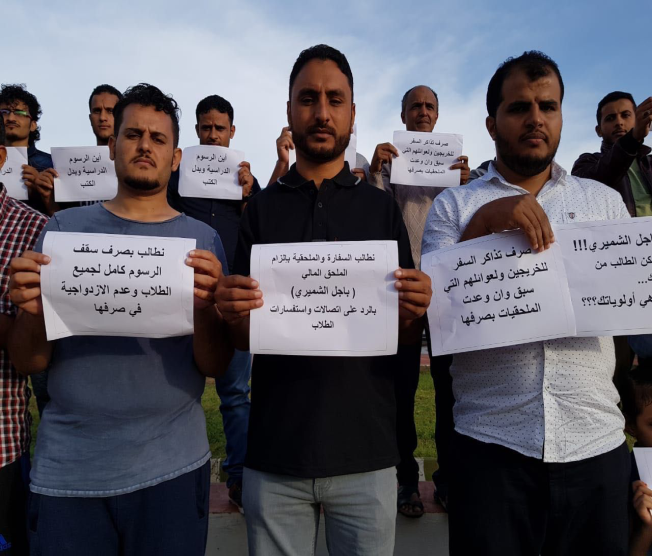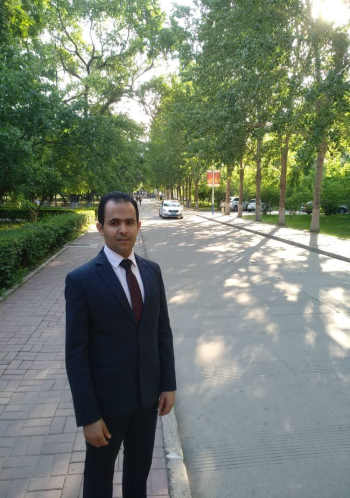How to get rid of suffering?
In a questionnaire directed to Yemeni students studying abroad, these twenty students, who are funded by non-governmental organizations, advised those who wish to obtain a scholarship abroad under the current circumstances in Yemen to look for fully-funded scholarships, whether from governmental or “foreign” private organizations. They also advised them to be familiar with the requirements for studying, to be diligent and persevere, to master the English language, and to do everything that would enable the student to study without stumbling and to obtain the scholarship with ease.
To shed light on the solutions, the newspaper conducted correspondence with some of the students from the countries of study who were included in the questionnaire, and spoke to them about the atmosphere of the study abroad.
- Tariq Al-Amoudi (Türkiye)
- Hisham Al-Suwais (Malaysia)
- Salem Al-Gharabi (Egypt)
- Faris Al-Astout (India)
- Hisham Alward (China)

Tariq Al-Amoudi, a Turkish government-sponsored chemical engineering student, spoke to us. He confirmed that the student receives a monthly stipend, along with housing and health insurance, which he described as "nearly sufficient" for his needs.

Going to Malaysia, the student Hisham Al-Suwais tells us about the atmosphere of his study mission, as he studies financial engineering at the expense of the Hadhramout Foundation for Human Development, where he indicated that the student has sufficient expenses to cover all his needs of food, drink, housing, etc., as he is given that expenses himself, and he is the one who manages them, as the amount of expenses for the month is (2000 ringgit = 500 dollars).

In Egypt, student Salem Omar Al-Gharabi tells us about his scholarship developments, in the same vein as his colleague Hisham Al-Suwais. He is completing his bachelor's degree in navigation and obtaining a second naval officer's certificate.

As for students studying at the expense of the Yemeni government, their responses were somewhat similar to those of their other peers. From India, Faris Al-Sa'tout, a doctoral student in medical biochemistry, sent a message to those who want to study abroad, asking them to have prior knowledge of the country of study and to have sufficient scientific language skills to achieve good academic results. He said: “I advise them to be patient because not receiving their dues, which can last up to eight months, is disastrous and unbearable, and generates frustration. Many suicides have been recorded as a result of difficult financial circumstances.”

Akapress concludes its interviews with students with Hisham Al-Ward from China, who specializes in biochemistry. He stated that the appropriate environment for the scholarship was not provided. Rather, the scholarship officials make the student feel that they are against him, and some of them try to obstruct the scholarship by deliberately delaying the scholarship procedures, which forces some students to travel without completing the procedures and search for an agent to complete them. Here, another suffering begins, and the student feels lost because he did not complete his procedures and his dues were not disbursed. If he completes his procedures inside Yemen, he begins a new journey of suffering with the cultural attaché, and thus the student’s suffering continues, which pushes him to search for a job opportunity to support himself and his family in Yemen. From here, the student’s level of academic achievement begins to decline, to the point that some students who obtain jobs, unfortunately, abandon their studies.
Alward agrees with his colleagues on the need for adequate funding for the grant, preferably a non-governmental grant.
